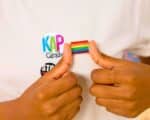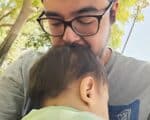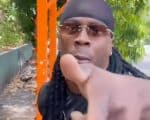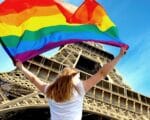PEOPLE – La rumeur sur l’homosexualité de l’actrice américaine de 58 ans courait déjà depuis le début des années 1980. Dans une interview accordée au magazine LGBT « PrideSource » à l’occasion de la sortie du DVD « Whoopie Goldberg Presents Moms Mabley », l’interprète de Sister Act y a répondu.
Celle qui jouait le rôle d’une femme lesbienne dans la comédie dramatique »Avec ou sans homme » sortie en 1995, l’affirme: » Non, je suis hétéro, mais qu’est-ce que cela veut dire? Qu’est-ce que cela signifie vraiment? »
« Il y a tout un tas de choses dont les gens auraient pu m’accuser – des choses qui auraient vraiment été bouleversantes! Mais ça n’en fait pas partie. Ça ne l’a jamais été. J’ai grandi dans un théâtre. J’ai grandi dans un environnement où il y avait toujours des homosexuels et je ne comprenais donc pas pourquoi ça aurait pu toucher les gens (que je le sois, ndlr) », indique l’actrice dont la carrière a pris son envol en 1983 dans la pièce de théâtre intitulée « The Spoke Show ».
Fervente militante de la cause homosexuelle, Whoopie Goldberg, de son vrai nom Caryn Johnson, a toujours été considérée comme une icône gay. Une situation qui ne l’a jamais dérangé, bien au contraire:
« Vous savez, personne ne me revendiquait, personne ne me voulait. La communauté noire ne me voulait pas. Personne. Mais j’ai toujours été revendiqué par la communauté homosexuelle, toujours. », confie Whoopie Goldberg à Pridesource.
Et lasse de cette tendance qu’on les gens a toujours vouloir mettre des étiquettes sur chacun, elle conclut: « Les gens continuent d’essayer de nous classer en « t’es gay », « t’es noir », « t’es blanc ». Mais nous somme tous un seul peuple. Si nous ne reconnaissons pas ça, nous avons de gros soucis. »
>> Whoopi Goldberg: ‘I’ve always been claimed by the gay community’
There is something about Whoopi Goldberg that has always been inspiring. From her ability to make people laugh to her commitment in standing up for what she believes in, “The View” co-host has always stayed true to being herself. In an interview with Chris Azzopardi of pridesource.com published on Monday, the comedienne talked about rumors surrounding her sexuality, her earliest comedy heroes, Jackie “Moms” Mabley, and her commitment to gay rights.
As rumors surrounding her sexuality has continued to resurface, Goldberg refuse to pay it any mind. The associations started in the 70s when she had the ability to draw laughs from lesbians at San Francisco comedy clubs and they continued when she became an ally for gay rights. Instantly there were people who assumed she was just a person who was afraid to come out of the closet. Goldberg found those assumptions “ridiculous.”
“I was like, ‘Uh, no.’ People just didn’t understand.” She said in the interview. “You see bad situations or stupid situations, like folks having an issue with who you cared about, who you wanna be with, all that kind of stuff that has nothing to do with the realities of our world.”
The reality of Goldberg’s world was that it was nobody’s business as she found anyone having a problem with someone’s difference completely “stupid.” The fact that she grew up around gay people is a reason she could never understand why “people freak out about it” and why so much paranoia exists about how people view them. That’s why the “Ghost” actress has instilled a “who cares” attitude. She doesn’t care what someone is going to think about her because of who or what she is associated with.
That is also something she picked up from standup comedienne Jackie “Moms” Mabley. A 20th-century trailblazer, Mabley was a civil rights activist, the first female comedian and a lesbian during a time when homosexuality just wasn’t discussed. Mabley was able to make a name for herself because being funny was all that mattered to people back then. When asked Mabley’s sexuality would’ve been a career breaker in the 20s and 30s, Goldberg said, “Nobody was thinking about it. If you weren’t funny, you didn’t work. Your sexuality, who you were – whether you were a man or a woman – didn’t matter. Funny trumps everything.”
As far as her own career, the 58-year-old actress, comedienne, and talk show host paid homage to the gay community for claiming her. As being funny was a connection, standing up for gay rights and being an ally was more about an understanding that people are people no matter whom they love or who they are. One thing Mabley didn’t have was a community openly standing behind her. Goldberg is able to have that even when appeared people didn’t want her.
She says, “You know, no one was trying to claim me, nobody wanted me. Black folks didn’t want me. Nobody wanted me. But I’ve always been claimed by the gay community. Always. People keep trying to divide us into ‘you’re gay, you’re black, you’re white,’ but we’re all one people.” And that has always been a message Whoopi Goldberg has relayed.
Full interview :
Never one to give a flying you-know-what, Whoopi Goldberg has made a career out of not caring. Ask her about her sexuality – to some, a lingering enigma since the ’70s, when Goldberg made lots of lesbians laugh at San Francisco comedy clubs – and she doesn’t get all the fuss. Ask her what she thinks about pot – actually, don’t even bother. She just wrote a column about it. Whoopi loves a blunt.
It makes a lot of sense, then, that one of Goldberg’s earliest comedy heroes is veteran standup Jackie « Moms » Mabley, the 20th-century trailblazer – and later, a civil rights activist – known for a so-what attitude, her edgy humor and dressing like your grandma. The first female comedian to be featured at the Apollo, Mabley was also known to be a lesbian, a topic discussed in « Whoopi Goldberg Presents Moms Mabley » (on DVD May 20), a Goldberg-funded documentary featuring a roster of comedy big shots: Joan Rivers, Eddie Murphy, Bill Cosby and Kathy Griffin.
In this recent interview with Whoopi, the comedian-actress talked about how being a lesbian had no effect on Moms becoming « the funniest woman in the world, » the longstanding rumors of Goldberg’s own sexuality and her commitment to the fight for gay rights.
How do you think a black lesbian like Moms managed to have such a following in the ’20s and ’30s, a time when homosexuality would’ve likely been a career breaker?
Nobody was thinking about it. If you weren’t funny, you didn’t work. Your sexuality, who you were – whether you were a man or a woman – didn’t matter. Funny trumps everything.
You were an early ally of the LGBT community at a time when identifying as such was a much bigger risk. At that point in time, people would automatically assume an ally was someone who just did not want to come out of the closet.
(Laughs) That’s what people thought! It was ridiculous. I was like, « Uh, no. » People just didn’t understand. You see bad situations or stupid situations, like folks having an issue with who you cared about, who you wanna be with, all that kind of stuff that has nothing to do with the realities of our world. The realities of the world I grew up in was: It was nobody’s business. If you’re not doing your job, then I’m gonna bitch. But I’m not gonna bitch at anybody ’cause they’re gay, or because they weigh a lot more than me. At the time, it just seemed so stupid to me that this was what people’s issues were.
As an ally and as someone with a long history in the movement, what’s your take on the role you played then and the evolving nature of being identified as an ally?
I don’t know yet. There was nothing anybody could do to me then, because I felt that these were my friends and my people, and no one had a right to judge them. I don’t want people messing with me, so I defend everybody’s right to be themselves. That has always been my battle cry. I think now, people get it. They understand it because they’re looking at themselves saying, « This is how I am. » I know if somebody’s messing with me, I don’t wanna hear it. I have to stand up. Get off my stage.
People have long speculated about your sexuality, haven’t they?
(Laughs) Yeah! And it’s like, there are a lot worse things people could have accused me of – things that would really be upsetting! That’s not one of them. It never has been. I grew up in the theater. I grew up in a neighborhood where there was always gay folks. Always! So I never understood people’s freak out about it. Everybody is so damn paranoid about everything. They’re so concerned that (people) are gonna be like, « Oh, somebody’s gonna think I’m gay. » So what! What happens if they do?
Considering how long people have wondered how you swing, watching « Moms Mabley » made me think: Should a documentary be made about your life one day, how do you want people to characterize your sexual identity?
I don’t care. Don’t care! Because I’ll probably be gone by then! (Laughs) With all the amazing people who have come out, if you’re still talking about my sexuality – I’m the one you choose – you’re not doing your job.
But don’t you think celebrities also play a role in the gay rights movement just by being themselves?
They do now. But there was a time when people were like, « Oh, no, I’m not gonna say anything. Somebody’s gonna think I’m (gay). » It’s like, you’d be lucky if somebody thought you were gay! That’s my response to everybody. If that’s what you’re freaking out about, then you’re concerned about the wrong thing.
In 2008, you held up a sign that said « For My Friends – Equal Rights » during a Prop 8 protest in New York. In 2010, you joined Cyndi Lauper in the launch of her Give a Damn Campaign to raise awareness of LGBT discrimination. But your gay advocacy dates back even further than that: You pushed an AIDS-stricken man in a wheelchair in the 1987 March on Washington. What motivated you to become an ally?
Well, sure, there’s all of that, but I’ve always had gay people in my life. I mean, I grew up in Chelsea, a neighborhood that has all kinds of folks, because nobody had any money. We were all poor. There were men you’d call « uncle » who never seemed to have girlfriends, and they were your « uncle. » Later on you learned what it meant. These guys didn’t want to be with these girls. They had their love from their brothers. They wanted their men.
And Moms, despite talking about young men in her act, had a thing for the ladies.
Yeah, she worked a great game.
She was all about living life on her own terms. Moms must remind you of yourself in that sense.
It’s crazy – she’s very much like me. Very much! Like her, I’m always trying to get the gig, and it can be a bit difficult because I’m not conventional.
There’s many things people can wonder about, but if you don’t know by now, it’s because you don’t wanna know. I say to people, « Well, what do you think I am? » They say, « We think you’re gay. » I say, « If that’s what you wanna think, OK! »
I have been gay in films. I’ve done two: « The Color Purple » and I always forget what the other one is. People assume they know because they’ve seen you in a movie or because they’ve seen you do something or they’ve heard you say something, and then they make assumptions. Quite honestly, I was glad to be claimed.
We were happy to claim you.
Yes! You know, no one was trying to claim me, nobody wanted me. Black folks didn’t want me. Nobody wanted me. But I’ve always been claimed by the gay community. Always.
And maybe that’s why people have assumed you’re anything but straight. Through the years you’ve even made some vague remarks regarding your sexuality. For instance, on « The View » in 2009 you told Barbara Walters, when she made a comment about you coming out of the closet, « Please, that door’s been open for years. » Is your sexuality something you prefer to leave ambiguous?
No, I’m pretty clear. You’ve never seen me with a woman. Pretty much been married to men the whooole time! Not the same, but a few of them. (Laughs) Nah, I’m straight, but what does it mean? What does it really mean?
It means you play a lesbian in « Boys on the Side » and people jump to conclusions.
Yes, that’s the other one! Thank you. I love that movie. I always forget « Boys on the Side » because I did « The Color Purple » and I know people saw that first.
What’s gayer: playing an actual lesbian or a singing nun?
It’s all a challenge because you always have to find out what your sweet spot is in a piece. My sweet spot in « Boys on the Side » was how much I loved Mary-Louise (Parker, who played Robin). The sweet spot for « Sister Act » was really religion – that everybody can have some relationship to religion and it doesn’t have to be what everybody else thinks that relationship should be.
I love that answer, but I think you misinterpreted my question.
I’m sorry. I’m on a cell phone. I can’t hear shit, honey!
We’ll just go with what you think I said.
I love you already.
Whatever happened to your nun’s habit from « Sister Act »?
I think I sent it to France. Everybody needs something for Halloween.
Thanks for chatting, Whoopi, and also for being an ally. Your advocacy in the gay community has meant a lot to a lot of people.
Well, we’re all one people, baby. People keep trying to divide us up into « you’re gay, you’re black, you’re white, » but we’re all one people. What fucks with one fucks with us all. If we don’t recognize that, we’re in deep trouble.
Chris Azzopardi is the editor of Q Syndicate, the international LGBT wire service. Reach him via his website at http://www.chris-azzopardi.com.
Le HuffPost


















